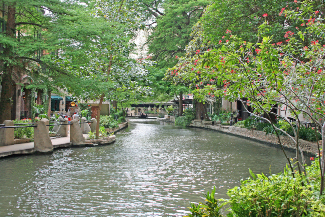Fort Boggy State Park is located in Leon County, Texas between the cities of Centerville and Leona. It is a 1,847-acre preserve that was donated to the Texas Parks and Wildlife Department in 1985 by Eileen Crain Sullivan. It allows visitors to see many types of wildlife, including many endangered species.
Fort Boggy State Park is a haven for nature lovers. Its clear, swimming lake is surrounded by lush vegetation and ample shade. Guests can explore nature trails while taking a stroll through the park’s  lush greenery. Visitors can also enjoy the peace and seclusion offered by the park’s low-key atmosphere. If you’d like to learn more about the park, check out its website or Facebook page.
lush greenery. Visitors can also enjoy the peace and seclusion offered by the park’s low-key atmosphere. If you’d like to learn more about the park, check out its website or Facebook page.
Fort Boggy State Park is located in Leon County, just north of Leon. It was donated to the Texas Parks and Wildlife Department by Eileen Crain Sullivan in 1985, and it opened as a state park in 2001. The park was named after the log fort built by early settlers in the 1840s. It was located on Boggy Creek, a tributary of the Trinity River. The park offers hiking trails, fishing, and boating, and has several educational programs.
Fort Boggy was built to protect settlers in the area. Because of its proximity to Boggy Creek, the fort was named for it. The fort consisted of two blockhouses and eleven dwellings. A military company was authorized by the Texas President, Mirabeau B. Lamar, who wanted to protect the settlers.
In the 1840s, settlers living between the Navasota and Trinity rivers built a fort. The fort was originally called Erwin Settlement, but was later renamed to Fort Boggy because it was so near Boggy Creek. Capt. Thomas Greer, who commanded the Texas Rangers, was killed by Indians during an attack in 1841. The original families left the fort soon afterward and the fort fell into disrepair. The fort consisted of two blockhouses and eleven dwellings covering a small area of about one square mile.
Fort Boggy State Park is an ideal place for those who love the outdoors. Its fifteen-acre lake is perfect for small boats without motors. Visitors can also rent kayaks and canoes. There are also many fishing opportunities for those who want to try their luck in the water. The park offers a variety of fishing gear, including rods and reels, sinkers, bobbers, and more. The lake is home to largemouth bass, catfish, and rainbow trout. During rainy seasons, the lake is also home to waterfowl.


